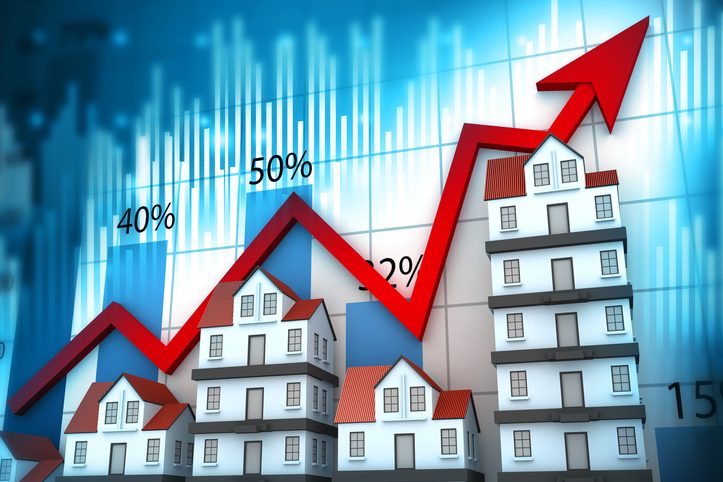
The real estate market is one of the most dynamic and influential sectors in the global economy. Whether you’re a buyer, seller, investor, or industry professional, staying up-to-date with real estate news is crucial to making informed decisions. This article will cover some of the latest trends and updates in the real estate market, from market forecasts to changes in regulations and emerging investment opportunities.
Global Real Estate Market Outlook
The global real estate market has been going through some major shifts in recent years. Factors such as economic fluctuations, interest rates, and the ongoing impact of the COVID-19 pandemic have all played a role in shaping the current real estate landscape. However, with increased demand in both residential and commercial sectors, 2024 is expected to bring both challenges and opportunities for investors and buyers alike.
1. Rising Interest Rates
Interest rates have been a key focus in the real estate market, especially in developed countries. Central banks in major economies, such as the U.S. Federal Reserve and the European Central Bank, have been raising interest rates in an effort to curb inflation. As a result, mortgage rates have also risen, which has impacted both homebuyers and real estate investors.
For homebuyers, higher interest rates mean higher monthly mortgage payments, which could affect affordability. This has led many buyers to reconsider their purchase plans or to explore smaller homes or alternative financing options. On the flip side, real estate investors may seek new strategies to offset higher borrowing costs, such as focusing on rental properties with steady cash flow.
2. Increasing Demand for Suburban Homes
As urban areas continue to face challenges such as overcrowding, high living costs, and remote work arrangements, suburban areas have become increasingly attractive. Many people, especially families, are relocating from crowded cities to suburban areas where they can find larger homes at more affordable prices.
In addition, the rise of remote work has made it possible for more individuals to work from home, leading to less of a need to live in close proximity to urban centers. Suburban areas now offer the perfect balance between affordability, space, and access to good schools and amenities. This trend is expected to continue as more people seek out homes in these quieter, more spacious communities.
3. The Return of Commercial Real Estate
While the commercial real estate sector faced significant challenges during the pandemic, it is starting to show signs of recovery. Offices, retail spaces, and industrial properties are experiencing increased demand, particularly as businesses transition back to physical workspaces or look to expand their operations.
However, this return comes with new expectations. The hybrid work model has led to a shift in the types of office spaces being sought. Companies are no longer interested in large, traditional office spaces but instead are focusing on flexible, collaborative spaces that foster creativity and teamwork. As a result, demand for office spaces with modern amenities and flexible lease terms is expected to increase.
In addition, the e-commerce boom has driven significant growth in the industrial sector, with more warehouses and distribution centers being built to accommodate the rise in online shopping. This sector is seeing significant investment as investors seek to capitalize on the growing demand for logistics facilities.
4. Sustainability and Green Building Trends
Sustainability is no longer just a buzzword in real estate; it has become a priority for developers, investors, and homeowners alike. The push for energy-efficient buildings and sustainable construction practices has led to a surge in green building projects. Green buildings are not only better for the environment, but they also offer long-term cost savings through energy-efficient design and reduced operational costs.
The growing emphasis on sustainability is also being driven by government regulations, which require new developments to meet specific environmental standards. Whether it’s the use of renewable energy sources, eco-friendly materials, or energy-efficient systems, the trend toward sustainability is here to stay and will continue to shape the future of real estate.
5. The Rise of Real Estate Technology (PropTech)
Technology has always played a significant role in the real estate industry, but in recent years, the adoption of technology has accelerated. Real estate technology, or PropTech, is revolutionizing how real estate transactions are conducted, making the process more efficient, transparent, and accessible.
PropTech innovations such as online property platforms, virtual tours, and blockchain technology are changing how people buy, sell, and rent properties. These technological advancements have made it easier for buyers to research properties, schedule viewings, and complete transactions remotely. In addition, smart home technology, including smart thermostats, security systems, and lighting, is becoming increasingly common in new homes, providing convenience and energy efficiency for homeowners.
6. Global Real Estate Investment Trends
Real estate investment has always been a popular choice for investors seeking stable returns. However, with the global economy facing uncertainty, some investors are becoming more cautious about their property investments. As a result, investors are diversifying their portfolios and seeking out markets that offer stability and long-term growth potential.
In particular, emerging markets in Asia, Africa, and Latin America are seeing increased interest from international investors. These markets offer higher returns, particularly in commercial real estate, but they also come with higher risk. As the global economy stabilizes, investors are likely to continue targeting these high-growth regions.
Conclusion
The real estate market is constantly evolving, and staying informed about the latest news and trends is essential for anyone involved in the industry. From rising interest rates and shifting demand for suburban homes to the growing focus on sustainability and technology, the market is undergoing significant transformations. Whether you are a buyer, seller, investor, or real estate professional, keeping up with real estate news will help you navigate these changes and make smarter decisions.
As we move into 2024, real estate will continue to offer unique opportunities and challenges. By understanding these key trends, you can better prepare for what lies ahead in the real estate market.
